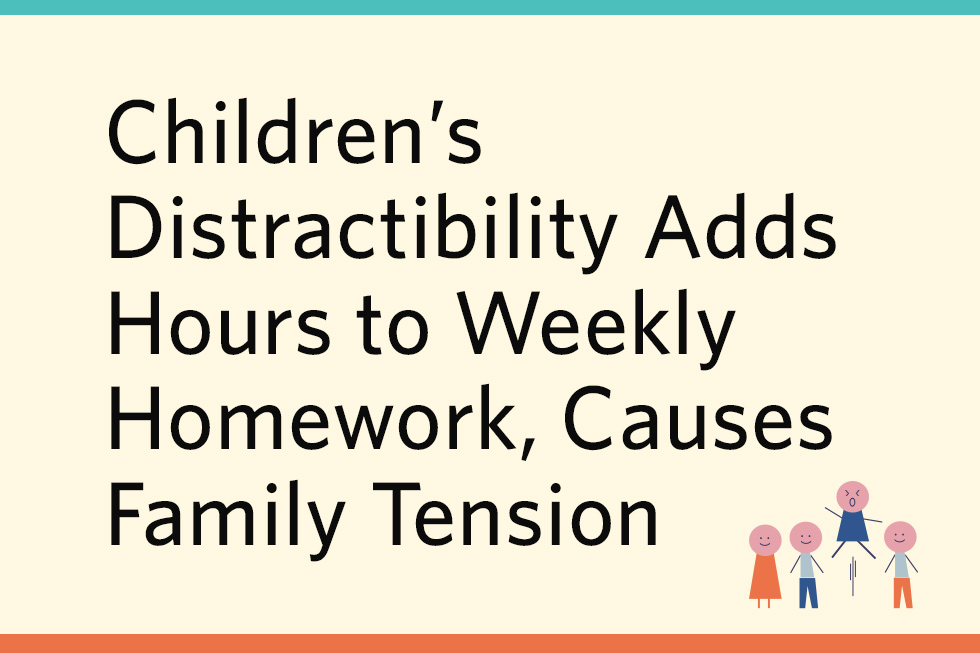According to a recent proprietary study by Narbis; a technology company dedicated to helping to enhance attention and concentration. A majority of parents —63 percent— report that their children’s homework is a source of household stress and frustration. This often becomes more noticeable as a child changes grades and starts to meet new challenges and expectations. To any parent of a child especially during this age of smartphones, this news will come with a little shock and much consternation.
Texting and its impact on homework has been studied?
It’s something almost all kids do. When we’re defending the practice we call it “multitasking.” How bad could it really be?
Pretty bad, according to a recent study that found the mere presence of a smartphone reduces a person’s ability to focus. In the study, undergraduates asked to leave their phones in another room did better on Cognitive tests than those who were asked to silence their phones and leave them face down on their desk or in a bag.
This is just one behavior that can add to stress levels at homework time.
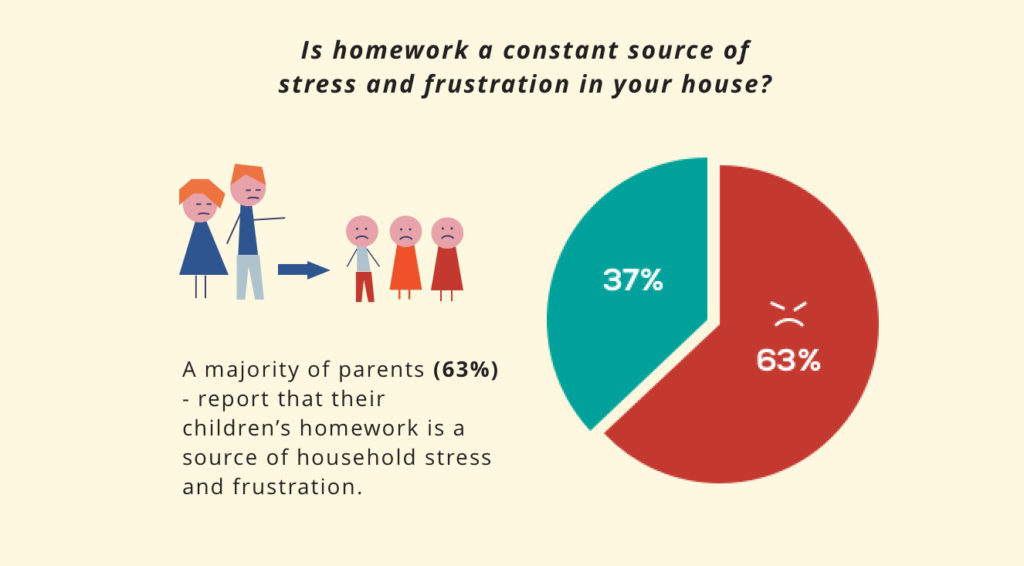
Eliminating stress, frustration, and pain in all its forms have been a constant goal driving many great innovations and modern advancements. Homework is supposed to be aiding our children’s development and enabling enlightenment, knowledge, and life skills. Not driving a wedge through the family fabric by adding more stress and frustration. Is harder homework the reason for household stress?
Do parents value their children’s education less now than they did in the past? If you ask any parent, they would say their children’s education is even more important now than ever before. Rather; as Narbis has endeavored to quantify in their recent survey, frustration mounts over the length of time needed to complete homework, projects and the need for parents to constantly redirect their children to stay on task.
Narbis surveyed 782 parents across the US. They found that, contrary to the notion that kids today have too much homework, more than half of the parents surveyed believe that children themselves are adding hours to their weekly homework burden because of distractions and lack of focus. Over 80 percent of parents report their child having homework struggles. 52 percent of all parents surveyed think their child struggles with an inability to focus and 43 percent of all parents surveyed think there are too many distractions for their child during homework time. With regard to the question, is there too much homework? Educational researchers have their say. According to Brian Gill, a senior social scientist at the Rand Corporation, there is no evidence that kids are doing more homework than they did before.
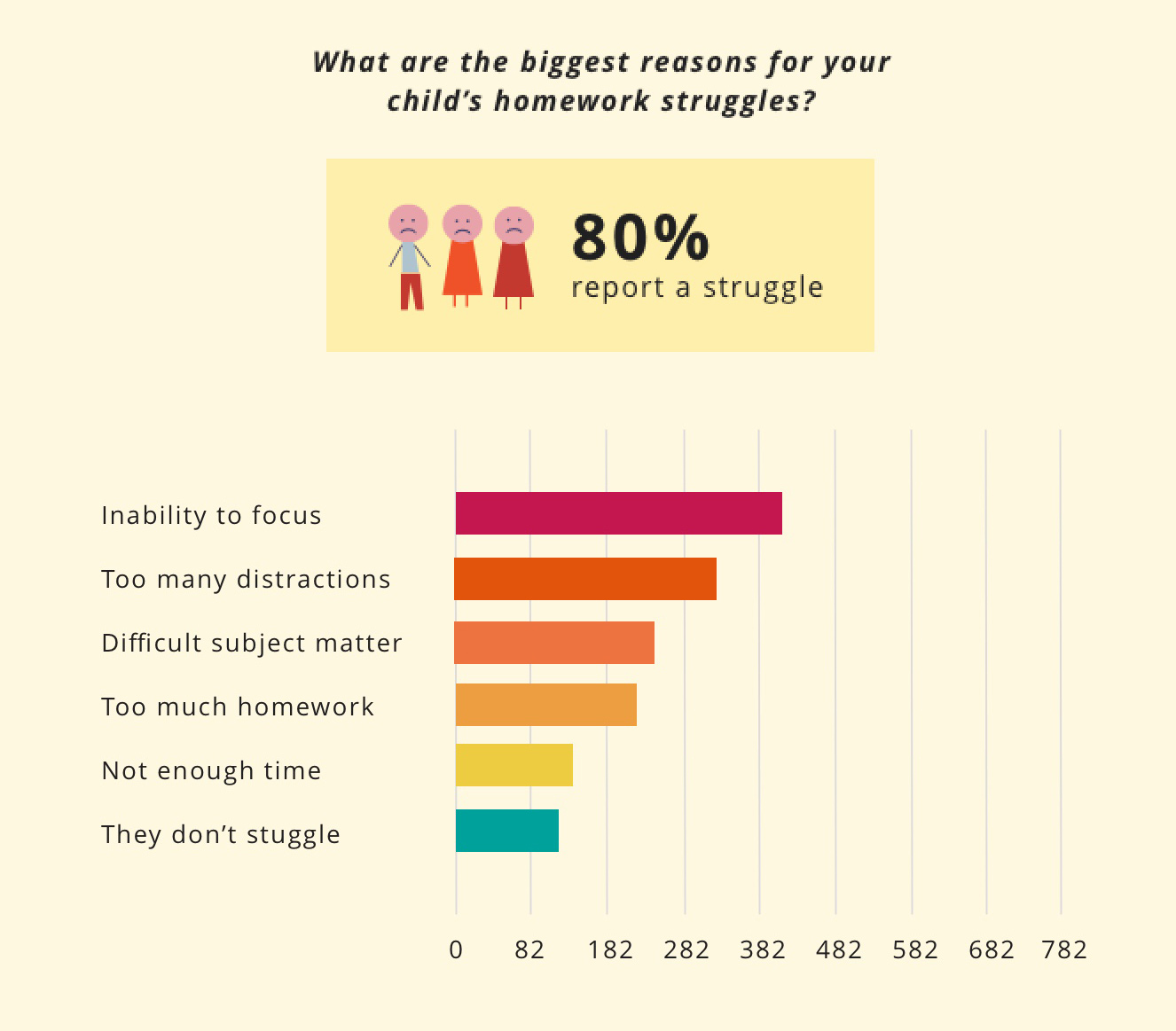
In total, 88 percent of parents think their child has a tendency to be easily distracted while doing homework, 34 percent of parents polled think their child is constantly distracted and 54 percent think their child is sometimes distracted while doing homework.
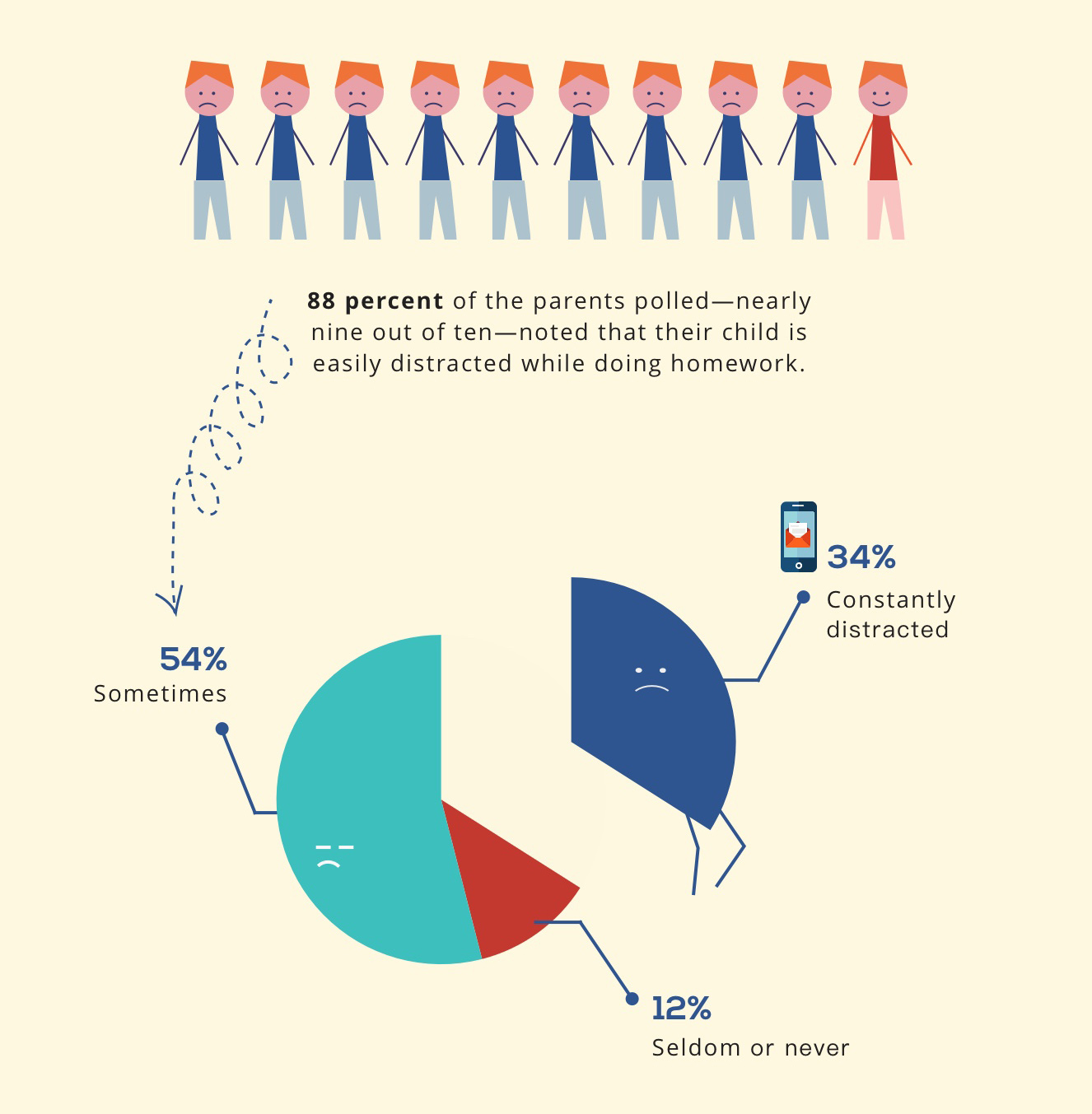
It’s easy to report on time wasted by distractions during homework but the scale of time wasted is alarming when plotted out against an average school day. 57 percent of parents report their child is spending between 30 minutes and 2 or more hours on distractions during homework. Those are distractions outside the time that it takes to actually accomplish the homework task. Which is of course time away from other family activities. Typical children aged 6-12 have about 6 hours between the end of a school day at 3 pm and a 9 pm bedtime. For an unfortunate 4 percent of respondents, 2 or more hours per day or ⅓ of possible family time after school is essentially wasted by distractions. Over a 180 day school year children can be wasting anywhere from 90 to 360 hours, on distractions.
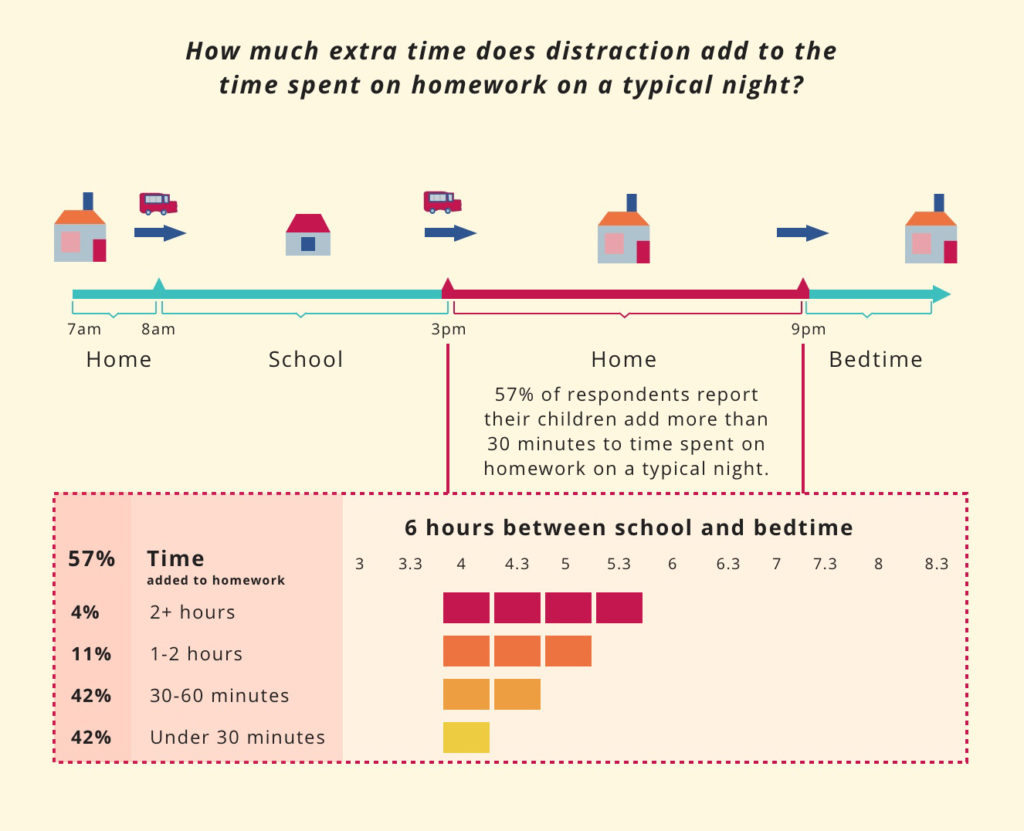
Technology has streamlined homework completion, to be sure: students now have far greater access to information than ever before. School reports that once required a trip to the local library or digging through textbooks and encyclopedias can now be researched in a matter of clicks. This access to information and communication has come with a cost on focus and productivity.
App alerts, messages, and notifications from friends, the latest memes and videos on Snapchat, TikTok, and social media platforms, games and the gamification of using phones, tablets, computers, and internet connected technology can all detract and distract from homework. And more often now than ever before, the same devices that are needed to complete the homework task; whether it’s using a calculator on the phone, typing a report on a computer or querying Siri/Google/Alexa for details of the American Revolution in 1776, are the ones with the most distractions. The same can apply to teenagers too. Before they know it, a notification inspired check up on the latest Instagram story, leads to sending the perfectly irreverently filtered Snapchat or two and that eats time —that lost productivity adds up fast.
One common worry among parents of children who’ve shown a tendency to lose focus is that their young students may have a clinical problem like ADHD or a learning disability. Despite the noted distractedness in their households, more than three quarters (77 percent) of the Narbis survey respondents noted that their child has not had a professional diagnosis of ADD or ADHD.
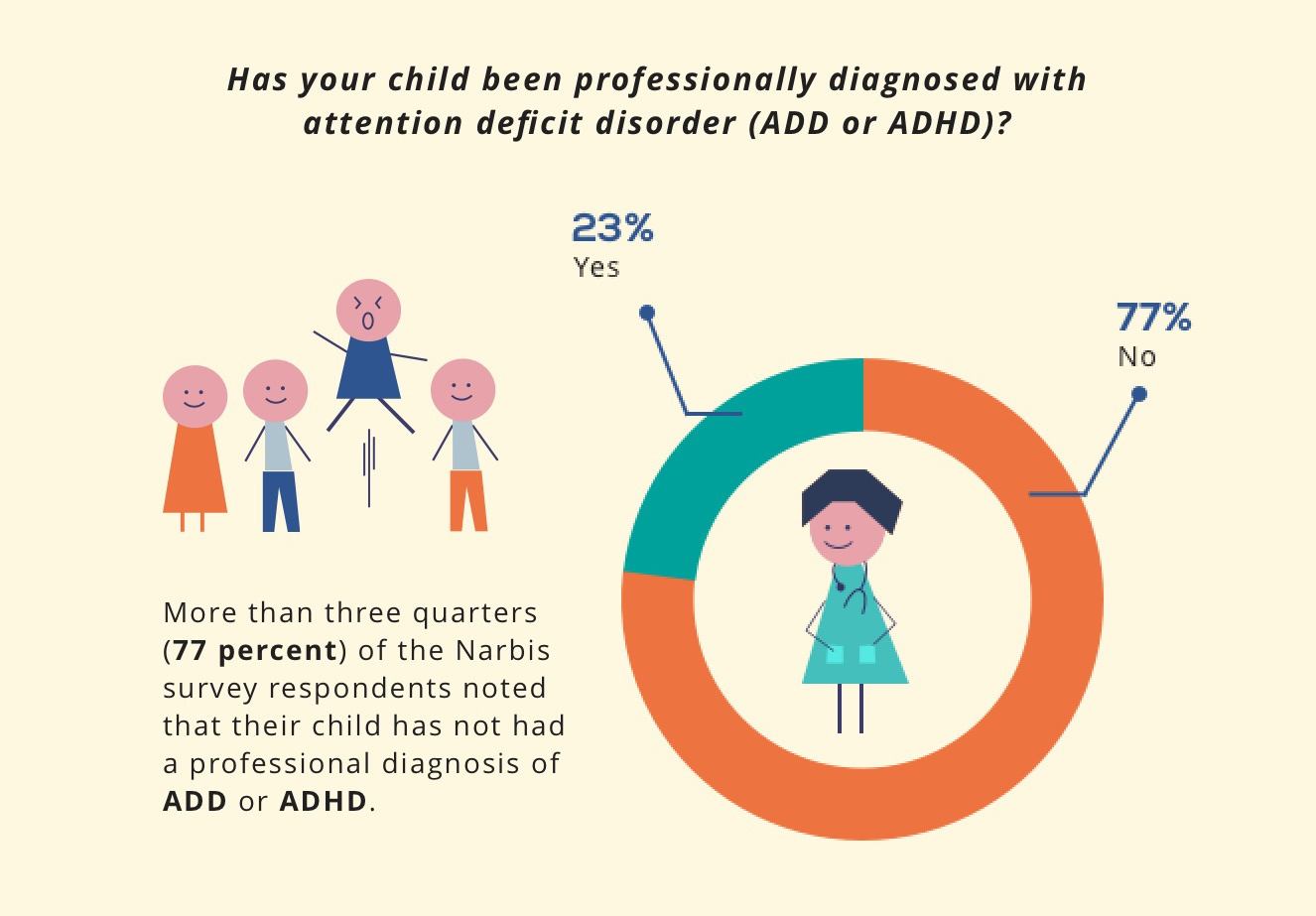
The number of distractions in homes do not seem to be diminishing any time soon. As a non-clinical device, Narbis is looking to support focus and attention in the home through neurofeedback. Wear Narbis 2 or 3 times a week for 30-minute sessions while reading or working on a computer, or doing homework, Narbis provides feedback instantly to alert the user recognize that they are being distracted, giving the cue to get back on task. Find out if Narbis might be able to help your students focus and attention abilities here.

